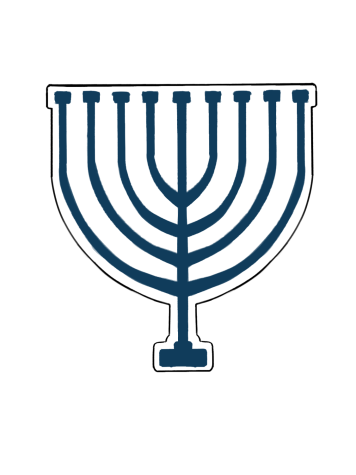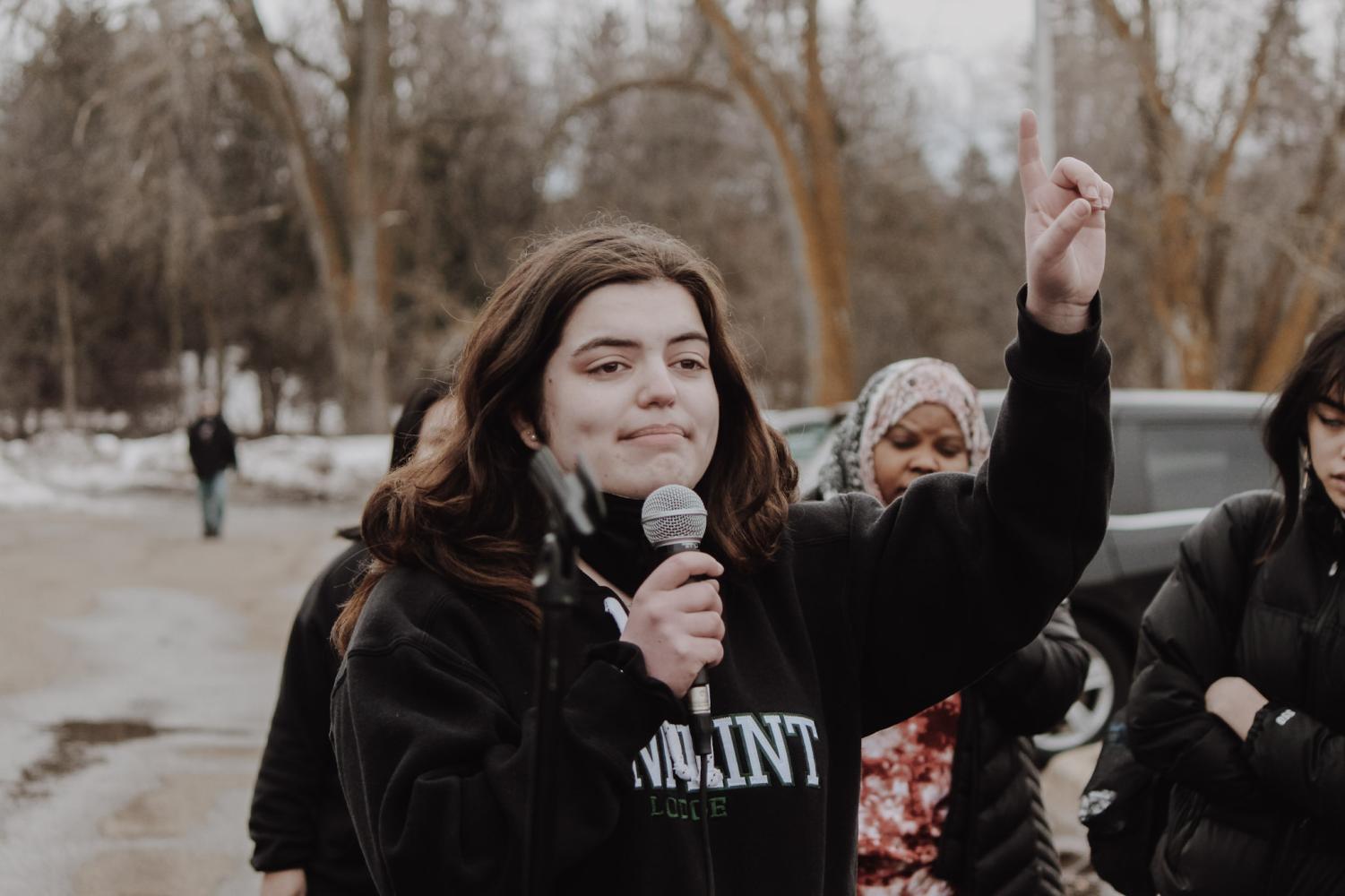Jewish students and faculty raise concerns over a culture of ignorance and exclusion
December 19, 2022
Christianity is ingrained in Edina Public Schools, from school activities to the district calendar. The Jewish population at EPS is small and often overlooked. Despite the district’s focus on inclusivity and diversity, Jewish students and faculty describe a school culture where Christianity is considered to be the norm.
A district calendar centered on Christianity
Last January, the Hopkins School Board, a district neighboring Edina, approved a new calendar for the 2022-23 school year which includes days off for Rosh Hashanah and Yom Kippur. On Dec. 14, Saint Paul Public Schools’ Board of Education added the same holidays to the district calendar. EPS’s calendar, on the other hand, only includes a break for Christmas. Though students did not have school on the first day of Rosh Hashanah this year, it was due to a Teacher In-Service day, which Jewish faculty were forced to skip.
Amy Kampf, an AP Economics teacher at EHS who missed the Teacher In-Service day to celebrate Rosh Hashanah, noted hypocrisy in the way it was held. “It was specifically on the topic of inclusion and trying to make people of different groups feel more included. We had the same exact problem the year before. I know they were very aware of this when they scheduled it,” she said. “I think maybe just having had a different topic on that day so a group that was central to that topic wasn’t absent would have been nice, especially given that we have had antisemitic incidents here.”
Harlan Brand, a building substitute at EHS, also took issue with having a Teacher In-Service day focused on inclusion during Rosh Hashanah. “The only constructive criticism I have is that if you have days off for non-Christian holidays, don’t have a professional development day for the teachers. A day off should be a day off. You don’t have professional development days on Christmas or Easter,” he said.
Adrienne Berman, an Edina mom whose children are in elementary and middle school at EPS, voiced her concerns over the “Christian-centric” school calendar. “This year, gratefully, we had Rosh Hashanah off…But it’s actually a two-day holiday. So the second day there was school. And then for Yom Kippur, which is the 10th day in that stretch, and which is the holiest day in the Jewish calendar, there was school that day, too.”

(Julia Kim)
She would also like to see more acknowledgment of Jewish holidays by the school district. “When the school sent out a reminder that, ‘Hey, there’s no school on this day,’ it wasn’t like, ‘And by the way, happy New Year to our Jewish families.’ That would just be a really nice extra addition, and it’s not there. So many other school districts are moving towards not having school on these holidays,” Berman said.
Berman has become involved on the district level by reaching out to EPS principals and administrators to educate them about Jewish holidays. “I was working with the district, and every year I’d print out a list of all the holidays and say that the Jewish calendar goes by the moon, so the holiday starts in the evening and it’s actually the night before and the day of. That was something that was new to them and they were able to try to do some good work on there. But again, that’s information that they could have just found online…I don’t think anyone’s trying to be intentionally exclusive or hurtful, but I don’t know that we’ve yet taken a step of actively trying to incorporate [inclusivity] into the way that we live,” Berman said.
Despite not having official breaks, many Jewish students and staff take time off for the High Holy Days, the most important Jewish holidays which occur in the fall. “I miss [school for] Rosh Hashanah and Yom Kippur. Sometimes I take a morning off for Purim. I used to take off for Passover, too, but that just got to be a bit much,” Brand said. “I mean, they’re important holidays. But being a quantitative minority culture in America, no matter how legitimate it is, if you’ve taken so many days off, pretty soon you have all your days off.”
Junior Lilly Atar no longer takes time off for religious holidays because of the amount of schoolwork she receives daily. “Taking time off for religion was very important when I was younger. I took time off, for example, on Yom Kippur, which is the holiday of apology and forgiveness. I spent the day at the temple and fasted,” she said. “I think it’s very important [to give time off for different religious holidays], because in school these days, if you miss just one class, you’re behind by a lot of work.”
While EPS does not give time off for non-Christian holidays, district policy is to excuse absences and prohibit tests on religious holidays. “[The district policy] has been the case for the time that I’ve been here. We’ve just been more intentional and overt about it in the last couple of years,” EHS Principal Andrew Beaton said. “We always notify people about religious holidays, but now we’re actually putting that piece about there being no exam and no summative due date on those particular days [on the calendar], just because you have this many people in this building and so many teachers and sometimes they might forget. We don’t want any student that has to practice their faith and feels like they can’t do that comfortably because they have a big exam that’s important to them.”
Nevertheless, some students question the enforcement of that policy. “Technically speaking, there can’t be any quizzes or tests or projects due on Rosh Hashanah or Yom Kippur, but there still are. It’s in the school policy, but not enforced at all,” senior Sally Rendleman said.
Jewish students have also been met with varying levels of tolerance from teachers regarding taking time off for religious holidays. “I’ve had some teachers that have been super helpful and have made sure that I don’t fall behind. We’re also not supposed to work on the day of the holidays, so [some teachers] have been very understanding of getting me the work beforehand,” Rendleman said. “But then I’ve had other teachers that have refused to give me the work, and then I fall behind and don’t do well in the class.”
Freshman Samantha Kushins was glad that her teacher was willing to work with her regarding taking time off. She had a test scheduled on Yom Kippur in her AP Government class. “I talked to my teacher about it, and he was very understanding and he moved the test,” Kushins said.
Berman commented on the advocacy work she has had to do over the years for her kids. “I’ve had a lot of hard conversations with my kids about school or sport leagues or community events that are scheduled on times that are holy for Jewish people where we can’t participate in those things,” Berman said. “When my daughter was in kindergarten, there were field trips scheduled on Rosh Hashanah, so that was obviously a day that she missed. One year, the PTO scheduled the World Culture Night for Yom Kippur and that felt ironic. There have been school pictures and school carnivals on holidays,” she said.
Berman, however, notes that she is grateful for the “tremendous support” she has received from the district and other parents. “When I have reached out to organizations or schools to flag [issues], the response is typically, ‘Oh my goodness, we’re so sorry. How can we change this or how can we make this better?’” she said.
Although EPS’s 2022 calendar labels the break from December 21 to January 2 as “winter break,” students have noticed bias in how the break is addressed. “I feel like when it comes around to winter break, people don’t say ‘Have a happy winter break’ or ‘Have a happy holiday,’ they say ‘Have a happy Christmas break.’ And for people who don’t celebrate Christmas, it’s just a bit non-inclusive,” Kushins said. Rendleman agreed: “In general, teachers will say ‘Have a good Christmas break.’”
Christmas celebrations and tokenism
Atar reflected on her experience as an elementary school student in Edina. “There were a lot of Christmas activities, and they would always say ‘holiday-related activities,’ but it was always just Christmas,” she said. “I found it so weird that we didn’t celebrate more than just Christmas. It’s important to show that there are other religions besides just Christianity.”
Christmas-centered celebrations don’t end after elementary school; EHS’s annual Winter Jubilee concert features songs primarily centered on the Christian holiday. “[Winter Jubilee] is fun, but there’s always one or two songs where it’s like, okay, this is touching a little too much on the religious side. ‘Rudolph the Red-Nosed Reindeer’ and ‘Santa Claus is Coming to Town’ are chill and fun, but when you get to singing about the birth of Jesus, that gets a little uncomfortable,” Rendleman said.
Kampf also took issue with the religious music in the Winter Jubilee concert. “I think it would be more inclusive if we did less religious music at the school or didn’t have a Christmas concert. I think it makes it less likely that Muslim and Jewish students will participate. Even if we include some Hanukkah songs, it still feels inappropriate in a public school,” she said.

Both Rendleman and Kampf noted that attempts to be inclusive to Jews by emphasizing Hanukkah feel misguided. “Hanukkah is a really, really minor holiday. It only gets attention here in the United States because it’s next to Christmas, while it’s barely observed outside of the U.S. So it feels very tokenized,” Kampf said. Rendleman added that people around her frequently assume that Hanukkah is the one and only major Jewish holiday. “I think the assumption only bothers me because it shows people’s ignorance about how Judaism works…They’re subconsciously assuming that everything circulates around Christianity. [Christian dominance] makes all other religious groups definitely feel segregated and separate and kind of out of place,” Rendleman said.
Addressing a lack of education
Rendleman traces the ignorance surrounding Judaism to a lack of education about non-Christian religions in schools, a sentiment expressed by many Jewish students. Kushins grew up in Duluth, Georgia before moving to Edina during middle school. “Contrary to what people usually think about [Georgia] being down in the south, it was a lot more inclusive,” she said. “I had much more diverse friends, and I learned about other religions when I was in third grade. Here, we didn’t learn about them until eighth grade. I feel like if we were more inclusive of religions in school, maybe learning about them, [or] maybe having more of them off than just Christian holidays, people would be more willing to talk about them,” Kushins said. Atar had a similar experience; she did not learn about non-Christian holidays at her elementary school in Edina. Instead, her Hebrew school provided this education.
Kampf has experienced intolerance at EHS that stems from a lack of education. “I certainly think there’s ignorance [about Judaism] and that that ignorance leads to feelings of being not included, whether it’s people being unaware of why I’m absent on a particular day, or having food at a staff meeting that I wouldn’t be able to eat,” she said.
Likewise, Rendleman traced ignorance about Judaism to antisemitism that has occurred in the community. “I think a majority of [antisemitic] incidents that have occurred have been due to two things. One of them is parents’ beliefs and kids just picking up on them…Another part of it is just general ignorance,” Rendleman said. “People say and do things that they don’t even realize are offensive or hurtful or discriminatory. So, I think that’s where the education piece comes into play.”
Students and faculty value their Jewish identity
Though it isn’t often appreciated or discussed in school, Jewish students and faculty emphasize the importance of their religion. “My faith is my identity so it’s very important to me personally. Since I was [young], to one degree or another, it had always been a part of my home life, and my religious and school life,” Brand said. “Being pulled out of school for Rosh Hashanah and Yom Kippur, I didn’t always appreciate why when I was in first grade…I grew older and I learned to appreciate it. So it’s as much a part of my life and identity as the color in my eyes.”

Atar honed in on the need for equal treatment of religious minorities. “I’m proud to be Jewish. My great-grandma and my great-great-grandma survived the Holocaust. So it’s very important to me that it’s respected and treated as important as Christianity,” she said.
“My religion is personally very important to me, just like anybody else’s is and I kind of just wish that right now America was a little bit more open to acknowledging other religions,” Kushins said. “Being a minority religion in such a big school is difficult and I think people should be more open to talking about it.”
This piece was originally published in Zephyrus’ print edition on Dec. 19.
